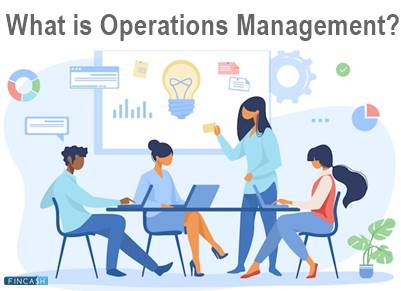
Table of Contents
What is Operations Management?
Operations management means managing the organisation’s operations in such a manner that they give the maximum return at the minimum cost. In other words, it means the most efficient utilisation of inputs to get the best outputs. This involves minimising the operations costs to maximise the operating profit.
Objectives of Operations Management
Operations management is the area of management dealing with the operations of production for effective business operations. Since it is directly connected with business operations, its importance cannot be ignored.

Operations management is important for any business as it helps in the following ways:
Achieving Goals
All business organisations have some objectives that are the primary reasons for their existence. They are directly or indirectly aimed at fulfilling these objectives. Operations management helps in efficient business operations and, thus, the achievement of objectives. Maximising Profits
The word ‘efficient’ in the definition of operations management means achieving maximum productivity with minimum wastage. In business organisations, Efficiency means effective cost-cutting to maximise profits.
Optimum Utilisation of Resources
This is again connected with the word ‘efficient.’ Only when there is optimum utilisation of resources will the organisation be able to manage its operations in the best possible way.
Customer Satisfaction
Operations management will result in quality products and services delivered to the customers. This will enhance not only customer satisfaction but also improve the goodwill of the business.
Talk to our investment specialist
Operations Management Process
Since the operations process involves three steps – acquiring raw material, producing, and selling and distributing – the operations process will also involve managing the operations of the business at these three stages.
This can be understood as similar to the Input-Process-Output (I-P-O) process in computers. The acquisition of raw material is input, Manufacturing is the process, and selling is output. Bringing efficiency to all of these stages concludes the process of operations management.
Types of Operations Management
Operations management revolves around the operations of a business and can be classified as follows:
Internal
Internal operations management, as the name suggests, involves efficiently managing the internal processes of a business. This includes manufacturing, hiring, communication between employees and departments, planning, etc.
External
External operations management involves the processes that take place outside the business, such as managing timely supply and delivery of products, customer satisfaction, providing after-sales services, and dealing with debtors and creditors.
Financial
All the decisions that are taken to finance the operations of the business come under this category. Minimising costs and maximising profits, dealing with costs, and acquiring finances for operations all come under the purview of financial operations management.
Functions of Operations Management
The functions of operations management define the scope of management. These are as follows:
Finance
Finance is the lifeblood of an organisation. It is not possible to undertake business operations without finance. Thus, a major function of operations management is effectively managing the funds of the organisation.
Planning
Planning means defining a path to achieve the required targets. From determining the source of finance to laying down production strategies and establishing supply chain strategies, the scope of planning includes everything. Only well-defined plans will help managers carry out the operations in the most efficient manner.
Product Designing
All business organisations aim to provide products or services to customers in one way or the other. Thus, this is ultimately the operation a business will undertake. For the best customer experience, the products or services must be of superior quality. They must also be manufactured within the limited financial resources and give the maximum profits on sale. Doing this is one of the major functions of operations management.
Forecasting
Forecasting means deciding the future course of action after analysing past and present trends. The operations of the business are decided upon. Forecasting aims to reduce the risk and uncertainties that a business might face in the future.
Operations Management Theories
Operations management is not a new concept in the business world. It has been here for a long time, and thus many management scientists have formulated various theories that help in better operations management. Some of these are:
Six Sigma
Six Sigma is a method that uses statistics to bring efficiency to management. It involves four steps, abbreviated as ‘DMAIC’ - Define, Measure, Analyse, Improve, and Control.
Business Process Reengineering (BPR)
As the word reengineering suggests, BPR means analysing the current business operations to find out the errors and mistakes and redefining new ways with the aim of effective cost cutting, fulfilment of objectives, and customer satisfaction.
Lean Manufacturing
Lean manufacturing is the process of reducing wastage while manufacturing, along with minimising manufacturing costs for an efficient manufacturing process. The aim is to maximise productivity as well as profits.
Reconfigurable Manufacturing System
The business world is a dynamic place; it is bound to change with time. Effective operations management will be the one where the business can easily adapt itself to the changes in the Market. This is the sole objective of developing reconfigurable manufacturing systems.
Supply Chain Management Vs Operations Management
Supply chain management includes optimising the acquisition of Raw Materials and supplying the finished products to the customers. On the other hand, operations management involves more of the process between these two functions, which is optimising the manufacturing process.
Conclusion
Operations management is a vital part of a business organisation. The role of the operations managers cannot be ignored in any organisation, be it big or small. To sum it up, operations management has three primary goals: minimising resource wastage, maximising profits, and ensuring customer satisfaction.
All efforts have been made to ensure the information provided here is accurate. However, no guarantees are made regarding correctness of data. Please verify with scheme information document before making any investment.












